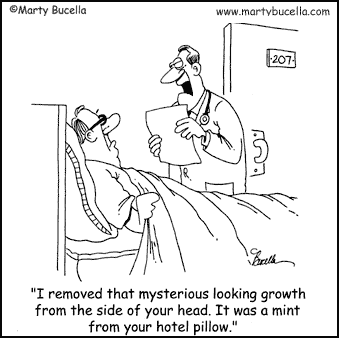Become a Patron!
You are using an out of date browser. It may not display this or other websites correctly.
You should upgrade or use an alternative browser.
You should upgrade or use an alternative browser.
Jimi's Daily Health Articles
- Thread starter Jimi
- Start date
New Jersey Bills S2173 and A3818 "Exemptions from Mandatory Immunizations"
https://www.greenmedinfo.health/blo...uY29tIiwgImtsX2NvbXBhbnlfaWQiOiAiSzJ2WEF5In0=
https://www.greenmedinfo.health/blo...uY29tIiwgImtsX2NvbXBhbnlfaWQiOiAiSzJ2WEF5In0=

Replay Weekend!
- Watch everything for free until Sunday night at Midnight -
https://stopfattyliver.com/rp-weekend/
Benefits of Grounding: For Health, Relaxation, and Happiness
https://primalmusings.com/health/health-benefits-grounding/
https://primalmusings.com/health/health-benefits-grounding/
Is this for vaccines?
It sure is
The thought of getting any makes my hair stand on end, too. But I’d only say that on this thread!

Have a good one, Jimi.


Ain't no way I am taking oneThe thought of getting any makes my hair stand on end, too. But I’d only say that on this thread!
Have a good one, Jimi.
Can Dogs Eat Cinnamon? Do’s & Don’ts for Your Furry Friend
https://draxe.com/pet-health/can-do...email&utm_campaign=20191215_curated_stickplug
https://draxe.com/pet-health/can-do...email&utm_campaign=20191215_curated_stickplug
There is no Evidence to Justify Cesarean or Vacuum for Prolonged Pushing
https://www.greenmedinfo.health/blo...uY29tIiwgImtsX2NvbXBhbnlfaWQiOiAiSzJ2WEF5In0=
https://www.greenmedinfo.health/blo...uY29tIiwgImtsX2NvbXBhbnlfaWQiOiAiSzJ2WEF5In0=
EXPLORING MEDICINAL MUSHROOMS: PART 5 – MAITAKE MUSHROOMS
https://orendablog.ca/2019/12/11/exploring-medicinal-mushrooms-part-4-maitake-mushrooms/
https://orendablog.ca/2019/12/11/exploring-medicinal-mushrooms-part-4-maitake-mushrooms/
Ain't no way I am taking one
They’re so toxic, aside from the crazy diseases they put in them, there’s heavy metals etc. And they’re given to new borns!!


The stem cells they grow these vaccines on is a cancerous cell so therefore you get trace amounts and if you're immune system isn't up to par it put's you at somewhat risk for cancer.They’re so toxic, aside from the crazy diseases they put in them, there’s heavy metals etc. And they’re given to new borns!!
The stem cells they grow these vaccines on is a cancerous cell so therefore you get trace amounts and if you're immune system isn't up to par it put's you at somewhat risk for cancer.
That way they can kill off some more people, and say that they’re trying to save them from flu, etc.
It’s not very different from banning vaping. They’re causing people to die by going back to smoking.

How to Manage Your Musculoskeletal Health
80% of all adults in the U.S. experience, or report, lower back pain.
Compare that to 12% of the population who has sought the services of a chiropractor, or a doctor specializing in musculoskeletal health. That’s quite a disconnect.
Your body is your armor, your vessel, your best weapon, your biggest asset, and your ticket to step into the world. If it’s functioning at a lower setting than it was designed to, if it’s stiff and in pain, if its joints are tight and its muscles sore…
The life you’re living is limited.
Visiting a chiropractor isn’t an option for everyone. Not everyone has healthcare, let alone healthcare that includes a trip to the chiropractor’s office. On average, you can expect a session to cost between $30 and $200. Accessible for some, but not for all.
But that’s okay, because the art of chiropracting is ancient and understandable to the layman.
In fact, Hippocrates, the father of medicine, famously said, “Look well to the spine for the causes of disease,” enlightening the public on the absolute necessity of caring for the muscles connected to the back.
Chiropractic is the study of physiology, which is the way in which a living organism or bodily part functions. It focuses on returning the spine to its correct alignment in function, which then serves to support the rest of the body. Its study is out of alignment with most Western medicine in that it relies heavily on the idea that the body already has all of the tools it needs to heal itself, and doesn’t require external correctional sources.
With that in mind, it’s helpful to know how to help yourself should you find yourself afflicted by back pain, aches, fatigue, poor sleep quality, neck pain, or lingering pain from an injury.
Let’s look at three powerful chiropractic techniques that can help you from home.

Hip Flexor Stretch
Your hip flexor muscle group is responsible for much of the mobility of your lower body. If your hip flexors are strained or tight, you’ll find that not only will you experience difficulty in performing tasks with your lower body, you may find yourself aching and uncomfortable.
To perform this stretch, here’s what you’ll do:
- Kneel on your right knee with your left foot planted in front of you and good posture in your torso. Let your hands sit on your hips.
- Push your hips forward slowly with your top half upright. You’ll feel the tension in your right hip.
- Remain there for thirty seconds.
- Perform the reverse stretch with your left hip and repeat two to three times.
Piriformis Stretch
This stretch targets the muscle that runs from the wedge-shaped vertebrae at the end of your spine, the sacrum, to the thigh bone. The piriformis commonly becomes inflamed or tightened due to prolonged sitting, so office workers will experience this kind of pain often. Keeping your piriformis healthy and functional can also ease knee and ankle pain.
Try this stretch:
- Roll a towel in a tight cylindrical shape.
- Sit firmly on the two bones at the lowest part of your backside and then place the rolled towel behind them, underneath your glute muscles. Lay your legs out in front of you.
- Tighten your core and release your shoulders and neck.
- Arch your back by pushing your chest forward and your rear back.
- Take your right leg and bring your right ankle to your left knee. Hold it there with both hands and maintain that position for 30 seconds.
- Reverse and repeat two to three times.

Pelvic Lift
Managing your pelvic health can help ease lower back pain, repair posture, and even improve bladder control. Working to better your pelvic strength also helps with ab strength and glute strength, so that you’re actually tackling a few pivotal body groups in stretching your pelvis.
Here’s what you’d do:
- Lie down on the floor with your back flat. Bend your knees and keep your feet flat and hip-width apart, arms laid out by your sides with palms facing the floor.
- Raise your pelvis by pushing your hips into the air as high as you can while contracting your glutes.
- Count to five and allow your hips to return to the floor slowly.
- Repeat up to ten times.
Remember, for serious injuries or issues, always consult a doctor when you can.
But if you treat your body with care and practice these stretches with gentility, mindfulness, and regularity, your body should feel better, stronger, and have more range of motion.
The Root of Autoimmune Disease can be Found in the Gut
https://www.greenmedinfo.health/blo...uY29tIiwgImtsX2NvbXBhbnlfaWQiOiAiSzJ2WEF5In0=
https://www.greenmedinfo.health/blo...uY29tIiwgImtsX2NvbXBhbnlfaWQiOiAiSzJ2WEF5In0=
Are Fortified Kids’ Breakfast Cereals Healthy or Just Candy?
https://nutritionfacts.org/video/ar...-25718665&mc_cid=2245e5999b&mc_eid=2fc2f620bb
https://nutritionfacts.org/video/ar...-25718665&mc_cid=2245e5999b&mc_eid=2fc2f620bb
New Jersey Moves to Abolish Religious Freedom
https://thetruthaboutcancer.com/new-jersey-vaccine-exemption-ban/?mpweb=144-8464201-684066488
https://thetruthaboutcancer.com/new-jersey-vaccine-exemption-ban/?mpweb=144-8464201-684066488
10 Health Myths to Stop Believing Now
https://www.newsmax.com/health/heal...b=DM75338_12162019&s=acs&dkt_nbr=0101023j64hh
https://www.newsmax.com/health/heal...b=DM75338_12162019&s=acs&dkt_nbr=0101023j64hh
5G, Law & strategy research
IRREGULATORS vs. FCC: Exposing and prosecuting a vast, illegal financial scandal behind 5G
https://takebackyourpower.net/irregulators-vs-fcc-interview/
IRREGULATORS vs. FCC: Exposing and prosecuting a vast, illegal financial scandal behind 5G
https://takebackyourpower.net/irregulators-vs-fcc-interview/
Stay hydrated and eat mindfully: 15 Ways to manage your appetite and stop overeating
https://www.naturalnews.com/2019-12-15-15-ways-to-manage-appetite-stop-overeating.html
https://www.naturalnews.com/2019-12-15-15-ways-to-manage-appetite-stop-overeating.html
Are Fortified Kids’ Breakfast Cereals Healthy or Just Candy?
https://nutritionfacts.org/video/ar...-25718665&mc_cid=2245e5999b&mc_eid=2fc2f620bb
When I think that I grew up eating Capn Crunch and whatever, I can’t believe it.

Oh no, pills that look like candy! The kids will be seduced by them. Oh wait, that’s the point!

The Secret to Living a
Century and Beyond
While you’d think most centenarians — people who’ve lived 100 years or longer — would offer up lots of do’s and don’ts on diet and exercise regimens, their longevity secrets, it turns out, have little to do with most of the usual healthy-living recommendations. In fact, many spent a lifetime ignoring the advice of health experts. They didn’t avoid smoking or lose weight, yet most centenarians say they feel on average 20 years younger than their chronological age.
Longest-surviving French woman, Jeanne Calment, for example, was a heavy smoker. And she enjoyed a drink; usually cheap red wine! Yet she lived to 123 years!

Centenarians, it seems, age more slowly than the rest of the population. Sardinia, a region of Italy, has the most centenarians per capita – 6 centenarians for every 3,000 people – 10 times more than in the US where the ratio is 1 per 5,000.
But, the health statistics for 100+ year olds may surprise you. For example:
So Why?
According to research and interviews with centenarians themselves, the primary difference between them and the rest of us comes down to six key ingredients (no particular order)…
Happiness, say centenarians, is the real key to a long life, and research backs them up. In fact, happy people tend to live about 35 percent longer. Makes sense; who would want to live 100 years if your life was lousy?
Positive thoughts and attitudes seem to somehow strengthen the immune system, boost positive emotions, and decrease pain and inflammation.
Sadly, though, life expectancy worldwide is now on the decline. Modern conveniences and technologies have left us stressed-out, unhappy, unhealthy, chronically tired, and disconnected from each other.
Yuckkk!
They say that if you want to live to 100 and enjoy the happy, healthy lifestyle they had, you must be proactive every day and that managing stress is vital. Most importantly, they all agree that the keys to living to 100 are available to everyone, everywhere. And, as you can see, they’re not complicated.
I have some KILLER ideas to enhance such a program. I love sharing these ideas and I myself benefit from them.
Century and Beyond
While you’d think most centenarians — people who’ve lived 100 years or longer — would offer up lots of do’s and don’ts on diet and exercise regimens, their longevity secrets, it turns out, have little to do with most of the usual healthy-living recommendations. In fact, many spent a lifetime ignoring the advice of health experts. They didn’t avoid smoking or lose weight, yet most centenarians say they feel on average 20 years younger than their chronological age.
Longest-surviving French woman, Jeanne Calment, for example, was a heavy smoker. And she enjoyed a drink; usually cheap red wine! Yet she lived to 123 years!

Centenarians, it seems, age more slowly than the rest of the population. Sardinia, a region of Italy, has the most centenarians per capita – 6 centenarians for every 3,000 people – 10 times more than in the US where the ratio is 1 per 5,000.
But, the health statistics for 100+ year olds may surprise you. For example:
- 37% were smokers for an average of 31 years
- 37% were overweight; 8% were obese
- 20% never exercised at all; 44% only moderately
So Why?
According to research and interviews with centenarians themselves, the primary difference between them and the rest of us comes down to six key ingredients (no particular order)…
- Zest for life
- Strong family and social ties
- Optimism
- Sense of humor
- Eating real food
- Hard work
Happiness, say centenarians, is the real key to a long life, and research backs them up. In fact, happy people tend to live about 35 percent longer. Makes sense; who would want to live 100 years if your life was lousy?
Positive thoughts and attitudes seem to somehow strengthen the immune system, boost positive emotions, and decrease pain and inflammation.
Sadly, though, life expectancy worldwide is now on the decline. Modern conveniences and technologies have left us stressed-out, unhappy, unhealthy, chronically tired, and disconnected from each other.
Yuckkk!
They say that if you want to live to 100 and enjoy the happy, healthy lifestyle they had, you must be proactive every day and that managing stress is vital. Most importantly, they all agree that the keys to living to 100 are available to everyone, everywhere. And, as you can see, they’re not complicated.
I have some KILLER ideas to enhance such a program. I love sharing these ideas and I myself benefit from them.
How Can You Shrink Thyroid Nodules?
https://drchristianson.com/how-can-you-shrink-thyroid-nodules/
https://drchristianson.com/how-can-you-shrink-thyroid-nodules/
Perimenopause, Estrogen Dominance, and PMS: Supplements for Relief
https://primalmusings.com/perimenopause/perimenopause-estrogen-dominance-pms/
https://primalmusings.com/perimenopause/perimenopause-estrogen-dominance-pms/
The cancer fighting benefits of Coenzyme Q10
https://www.naturalhealth365.com/benefits-of-coq10-3221.html
https://www.naturalhealth365.com/benefits-of-coq10-3221.html
It’s becoming common knowledge in scientific circles that our guts, or “second brains,” have a symbiotic relationship with almost every other system in our bodies.
What this means is that the composition of your microbiome is not only influenced by your body’s systems…
But that it influences them as well.
For example, stress can change the population diversity in your gut. However, the bacterial makeup of your gut can also affect the way that your brain releases happy chemicals, and the way that your nervous system releases stress chemicals.
Unsurprisingly, everything in the human body is connected to and affected by everything else.
And since we know that sleep is the necessary process by which our bodies restore and heal themselves…
It stands to reason that curious researchers want to better understand the relationship between the quality and amount of sleep we’re getting and the function of the gut.
Here’s what you need to know…

Gut Health is Essential for Healthy Sleep
You probably already know that your body operates according to its own unique inner clock, or circadian rhythm. It’s what’s responsible for regulating your waking energy and your natural descent into sleep.
A recent study found that the microbes in your gut also move in a dictated pattern, and this pattern is what influences your body clock. Maintaining a healthy and functional gut is critical in a regulated sleep cycle.
Conversely, when you mess with your circadian rhythm, by working the night shift or changing time zones, the composition of the gut microbiome changes and can cause metabolic issues and distorted communication between the gut and the rest of the body.
Perhaps on an obvious note, if you have digestive issues, you’ve probably found that your sleep is often light or interrupted. And of course, since bad sleep also affects the efficiency of your gut, this vicious cycle can continue uninterrupted unless you take steps to correct it. Taking prebiotics, for example, can help with gut woes and allow you to sleep more deeply.
Healthy Sleep is Necessary for Positive Bacterial Growth
Several studies have shown that sleep deprivation is linked with depleted healthy bacteria populations in the gut. What this suggests is that just like sleeping allows the body time to heal itself, it also allows the gut to restore its balance and repopulate healthy bacteria. Without that opportunity, the microbiome is out of whack and can cause a whole host of other problems.
Insufficient sleep can make pre-existing gut inflammation, like that which appears in people with leaky gut, even worse!
Under sleeping, or low quality sleep, is also associated with allergies and weather sensitivities. This is because sleep-deprived people over-produce B cells, which kick your immune system into high gear and make your body extra sensitive to external changes and unfamiliar entities.
Poor sleep quality has also been signaled as one of the driving factors in metabolic disorders that lead to obesity, diabetes, and more - which all begin in the gut, by the way.
In fact, myriad studies connect high sleep quality, high microbiome diversity, and stronger mental flexibility.

How to Break the Cycle
The solution is two-fold: take care of your gut, and take care of your sleep.
Easier said than done, right?
Try making sure that your bedroom is designed for maximum restfulness.
Don’t eat too close to bedtime. The reason for that is that when your digestive system is working to break down food, it isn’t at rest, and it will continue to function breaking down your last meal while your body is trying to shut down all its other systems for the night.
If you have a sensitive tummy, make sure that you’re getting prebiotics, like anything in the allium family (onions, garlic, leeks, etc), asparagus, plums, beans, green tea, and pure dark chocolate.
Try exercising in the evenings to make your body weary in a natural way. If that isn’t possible or doesn’t work, consider taking melatonin supplements an hour or so before you’d like to fall asleep.
Above all, make managing your stress a priority, since stress is detrimental to healthy bacterial populations in your microbiome and restful sleep.
What this means is that the composition of your microbiome is not only influenced by your body’s systems…
But that it influences them as well.
For example, stress can change the population diversity in your gut. However, the bacterial makeup of your gut can also affect the way that your brain releases happy chemicals, and the way that your nervous system releases stress chemicals.
Unsurprisingly, everything in the human body is connected to and affected by everything else.
And since we know that sleep is the necessary process by which our bodies restore and heal themselves…
It stands to reason that curious researchers want to better understand the relationship between the quality and amount of sleep we’re getting and the function of the gut.
Here’s what you need to know…

Gut Health is Essential for Healthy Sleep
You probably already know that your body operates according to its own unique inner clock, or circadian rhythm. It’s what’s responsible for regulating your waking energy and your natural descent into sleep.
A recent study found that the microbes in your gut also move in a dictated pattern, and this pattern is what influences your body clock. Maintaining a healthy and functional gut is critical in a regulated sleep cycle.
Conversely, when you mess with your circadian rhythm, by working the night shift or changing time zones, the composition of the gut microbiome changes and can cause metabolic issues and distorted communication between the gut and the rest of the body.
Perhaps on an obvious note, if you have digestive issues, you’ve probably found that your sleep is often light or interrupted. And of course, since bad sleep also affects the efficiency of your gut, this vicious cycle can continue uninterrupted unless you take steps to correct it. Taking prebiotics, for example, can help with gut woes and allow you to sleep more deeply.
Healthy Sleep is Necessary for Positive Bacterial Growth
Several studies have shown that sleep deprivation is linked with depleted healthy bacteria populations in the gut. What this suggests is that just like sleeping allows the body time to heal itself, it also allows the gut to restore its balance and repopulate healthy bacteria. Without that opportunity, the microbiome is out of whack and can cause a whole host of other problems.
Insufficient sleep can make pre-existing gut inflammation, like that which appears in people with leaky gut, even worse!
Under sleeping, or low quality sleep, is also associated with allergies and weather sensitivities. This is because sleep-deprived people over-produce B cells, which kick your immune system into high gear and make your body extra sensitive to external changes and unfamiliar entities.
Poor sleep quality has also been signaled as one of the driving factors in metabolic disorders that lead to obesity, diabetes, and more - which all begin in the gut, by the way.
In fact, myriad studies connect high sleep quality, high microbiome diversity, and stronger mental flexibility.

How to Break the Cycle
The solution is two-fold: take care of your gut, and take care of your sleep.
Easier said than done, right?
Try making sure that your bedroom is designed for maximum restfulness.
Don’t eat too close to bedtime. The reason for that is that when your digestive system is working to break down food, it isn’t at rest, and it will continue to function breaking down your last meal while your body is trying to shut down all its other systems for the night.
If you have a sensitive tummy, make sure that you’re getting prebiotics, like anything in the allium family (onions, garlic, leeks, etc), asparagus, plums, beans, green tea, and pure dark chocolate.
Try exercising in the evenings to make your body weary in a natural way. If that isn’t possible or doesn’t work, consider taking melatonin supplements an hour or so before you’d like to fall asleep.
Above all, make managing your stress a priority, since stress is detrimental to healthy bacterial populations in your microbiome and restful sleep.
Magnesium Loading: How To Optimize Magnesium Levels
https://drjockers.com/magnesium-loading/
https://drjockers.com/magnesium-loading/
The Benefits of Ginger for Osteoarthritis
https://nutritionfacts.org/2019/12/...-25718665&mc_cid=232305f76b&mc_eid=2fc2f620bb
https://nutritionfacts.org/2019/12/...-25718665&mc_cid=232305f76b&mc_eid=2fc2f620bb
Today's World Calls for a Radical New Approach to Detox
https://www.greenmedinfo.health/blo...uY29tIiwgImtsX2NvbXBhbnlfaWQiOiAiSzJ2WEF5In0=
https://www.greenmedinfo.health/blo...uY29tIiwgImtsX2NvbXBhbnlfaWQiOiAiSzJ2WEF5In0=
BREAKING: Wall Street Journal investigation finds Amazon.com selling actual “dumpster trash” food and supplements as NEW
https://www.naturalnews.com/2019-12...mazon-selling-actual-dumpster-trash-food.html
https://www.naturalnews.com/2019-12...mazon-selling-actual-dumpster-trash-food.html
Amazon.com still selling COAL as a dietary supplement, and it’s loaded with lead and aluminum… where is the FDA?
https://www.naturalnews.com/2019-12...nt-and-its-loaded-with-lead-and-aluminum.html
https://www.naturalnews.com/2019-12...nt-and-its-loaded-with-lead-and-aluminum.html
The top 10 most shocking POLLUTION stories of 2019
https://www.naturalnews.com/2019-12-17-top-10-shocking-pollution-stories-of-2019.html
https://www.naturalnews.com/2019-12-17-top-10-shocking-pollution-stories-of-2019.html
Ambushed by canola oil – that toxic “food stuff” that’s found in nearly everything processed these days
https://www.brighteon.com/8826e9a3-2440-4e29-a910-9125865d38c7
Everything your medical doctor is NOT telling you
https://www.brighteon.com/008ca51d-af5a-41ef-ad84-7d4001fee8c8
https://www.brighteon.com/8826e9a3-2440-4e29-a910-9125865d38c7
Everything your medical doctor is NOT telling you
https://www.brighteon.com/008ca51d-af5a-41ef-ad84-7d4001fee8c8
Inspiration for Your Week
You're going to be telling a different story really soon. One of healing, success, abundance, prosperity, love, happiness, peace, and great joy. You're going to be stronger, wiser, and full of life, sharing all your blessings and passing along the light you're receiving.
You're going to be telling a different story really soon. One of healing, success, abundance, prosperity, love, happiness, peace, and great joy. You're going to be stronger, wiser, and full of life, sharing all your blessings and passing along the light you're receiving.
Natural Remedies for a Better Night’s Sleep
https://sciencenaturalsecrets.com/46/
https://sciencenaturalsecrets.com/46/













